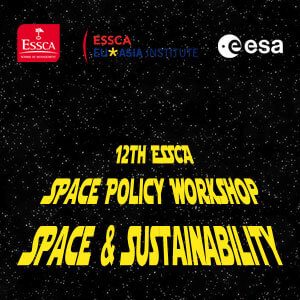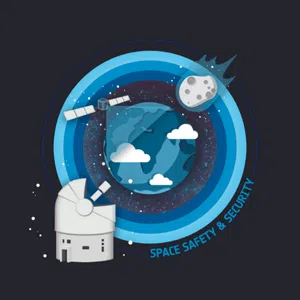The UACES Conference, held annually at the beginning of September, is a key event in the field of European Studies. This year's 54th edition, which took place in Trento, Italy, from 1 to 4 September, once again saw significant contributions from members of ESSCA's EU*Asia Institute.
The panel, chaired by Thomas Hoerber originate in the works of the ESSCA standing research group on European space policies which has been researching in this field for more than 10 years, with regular panels in UACES and workshops in the ESSCA campuses and partner institutions and that, year after year, enlarges thanks also to the visibility gained through UACES.
Antonella Forganni illustrated the recent EU Legislative Initiative on Safety, Resilience and Sustainability of Space Activities (so called ‘EU Space Law’). This study stems from her participation in the stakeholders’ consultation launched by the European Commission in 2023. She focused on the policy options presented by the Commission and their respective legal implications. The recommendations provided to the Commission are here expanded in an academic format that aims to contribute to the scholars’ debate, as well as to offer solid arguments to the policymakers, and specifically the EU legislator.
The legislative initiative takes place in the context of a complex evolving governance architecture composed of several key actors, as Lorna RYAN (City St George’s, University London, member of the ESSCA EU*Asia Institute and its Research Group on European Space Policy) highlighted in her presentation on the regional dimension of European space policy, in particular, considering spaceports. A clear example of how security and strategic autonomy have become key goals in the space policy strategy is the EU narrative about space access and space ports. The presentation considered the ways in which the concept of ‘autonomous access’ is used in EU space policy texts. It further reflected on the silence about conflict arising from the siting of spaceports. Given the planned expansion of satellite launches, contests about spaceport siting are likely to increase, particularly relevant for regions of the EU.
The presentation by Maria Vittoria Prest (Sapienza University of Rome, member of the Research Group on European Space Policy of the ESSCA EU*Asia Institute), on The European Union's Legal Approach to Space and Security in the Framework of the New EU Space Programme, widened the scope of the debate speaking about security issues and their centrality in the EU Space Policy for the forthcoming years, notably with regards to EU space infrastructures regulatory framework. She explained their rise in the context of the evolution of the Union's activities in space and the new EU space programme 2021-2027, and how they affect the role of the EU institutional actors in the relevant legal framework.
Finally, Thomas Hoerber closed the panel with his contribution about The Militarization of European Space Policy - A European Third Way. He illustrated the complex theoretical framework relevant to the EU Space Policy and argued that it is still insufficient to explain the developments of the European integration process in this domain. To fill the gap, he focuses on the human agency theory to complete the functionalism approach and to stress the added value that space has for the European integration, on one hand, and the added value that the EU brings at the global level for the Space Policy.
In summary, the panel highlighted the growing role of the EU in shaping space policy through its legislative initiatives and its strategic focus on security and autonomy, positioning Europe as a key actor in global space policy. The discussions underlined the added value of European integration in promoting space policy and its importance on the international stage.
Photo of the article: UACES plenary session




